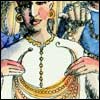If you’ve read anything on The New York Times best-seller list in the past decade, you might suspect that the answer is yes. Much has been written on money mindset and how our thoughts impact the balance of our bank accounts. Perhaps this is yet another area where the world is catching up to Torah.
I’m reminded of one of my favorite Jewish personalities, the great Chassidic master Reb Zusha of Anipoli. The saintly sage used to finish his morning prayers and say out loud to G‑d, “Master of the World, your servant, Zusha, would like some breakfast.” On cue, his attendant would serve him breakfast.
This went on every morning for a very long time.
One day, the attendant thought to himself, “Ugh Zusha, who do you think brings you breakfast every day!? I do! I’m the one who makes you breakfast and serves you breakfast! I’ll teach you a lesson! See what will happen tomorrow morning ... .”
The next day, after his morning prayers, Reb Zusha uttered his usual statement: “Master of the World, your servant Zusha would like some breakfast.”
The attendant stayed with his arms crossed in the kitchen, grinned and did not serve breakfast.
Suddenly, there was a knock on the door ...
When the attendant opened the door, he found a man holding platters of food. “I had been given a blessing for a child from Reb Zusha. I am bringing this as a gift of gratitude since now my child has been born.”
The attendant pondered, “Ah, Zusha, Zusha, what was I thinking!? Indeed, it is the Master of the Universe who feeds Reb Zusha. I’m just His channel. And if I refuse to feed Zusha, well G‑d Almighty simply finds another channel to bring him food.”
Admittedly, if I tried to emulate the saintly Reb Zusha, I’m sure my household help would get less gratifying results. Nevertheless, the lesson in trust is profound, and something I try to internalize every single day. In fact, the more I learn about Zusha, the more I realize how much financial impact my mindset could have.
Zusha’s mastery of trust doesn’t end with this story. Had he left us a book on money mindset, it would surely be a Times’ best-seller many years in a row. In its stead, he directed us towards his original source of wisdom: the Torah.
Rabbi Elimelech of Lizhensk quotes his brother Zusha’s short and profound insight on the Portion of Behar in his book Noam Elimelech.
“If you ask, ‘What will we eat in the seventh year? After all, we must not sow nor gather in our produce.’ I will then command my blessing for you in the sixth year, and the land will yield produce for the three years’ use” (Devarim 25:20-21).
Reb Zusha points out that when the Torah narrates the mitzvah of shmittah (a sabbatical of the land, which occurs every seven years in Israel), it departs from its usual brevity, introducing two seemingly superfluous verses in question and answer form: “If you ask ‘what will we eat in the seventh year?’ ... I will then command my blessing for you in the sixth year ...”1
The Torah could have just stated the mitzvah of shmittah without a full two verses saying what we, the Jewish people, might wonder about “how will we eat?” and the answer we will elicit from G‑d is the blessing of the land’s produce.
What is the Torah trying to teach us by unusual departure of form?
Zusha tells us that the Torah is not saying “if you ask,” but rather “when you ask,” to teach us that when we let the thought “I won’t have enough!” enter our mind, we will cause an immediate interruption in the flow of abundance that G‑d created for us since the beginning of creation.
Yes, Reb Zusha explains, G‑d creates every person with a pipeline of abundance drawing down from Heaven. This flow is continuous and uninterrupted, except in the event that the person loses trust in G‑d.
At that moment, explains Zusha, G‑d has to put a backup plan in effect and make a new command for our abundance to flow once again. G‑d’s answer to our question, “I will then command my blessing for you in the sixth year, and the land will yield produce for the three years’ use”2 is the backup plan—a command elicited by our lack of trust. Ideally, we would have accepted the mitzvah of shmittah and never doubted the blessing that G‑d had bestowed upon us in the first place!
Rather than asking questions like “what will we eat?” says Zusha, “trust G‑d with all your heart, and thus abundance will always flow to you and you will have no lack.”3








Thanks for Sharing this wonderful insight.